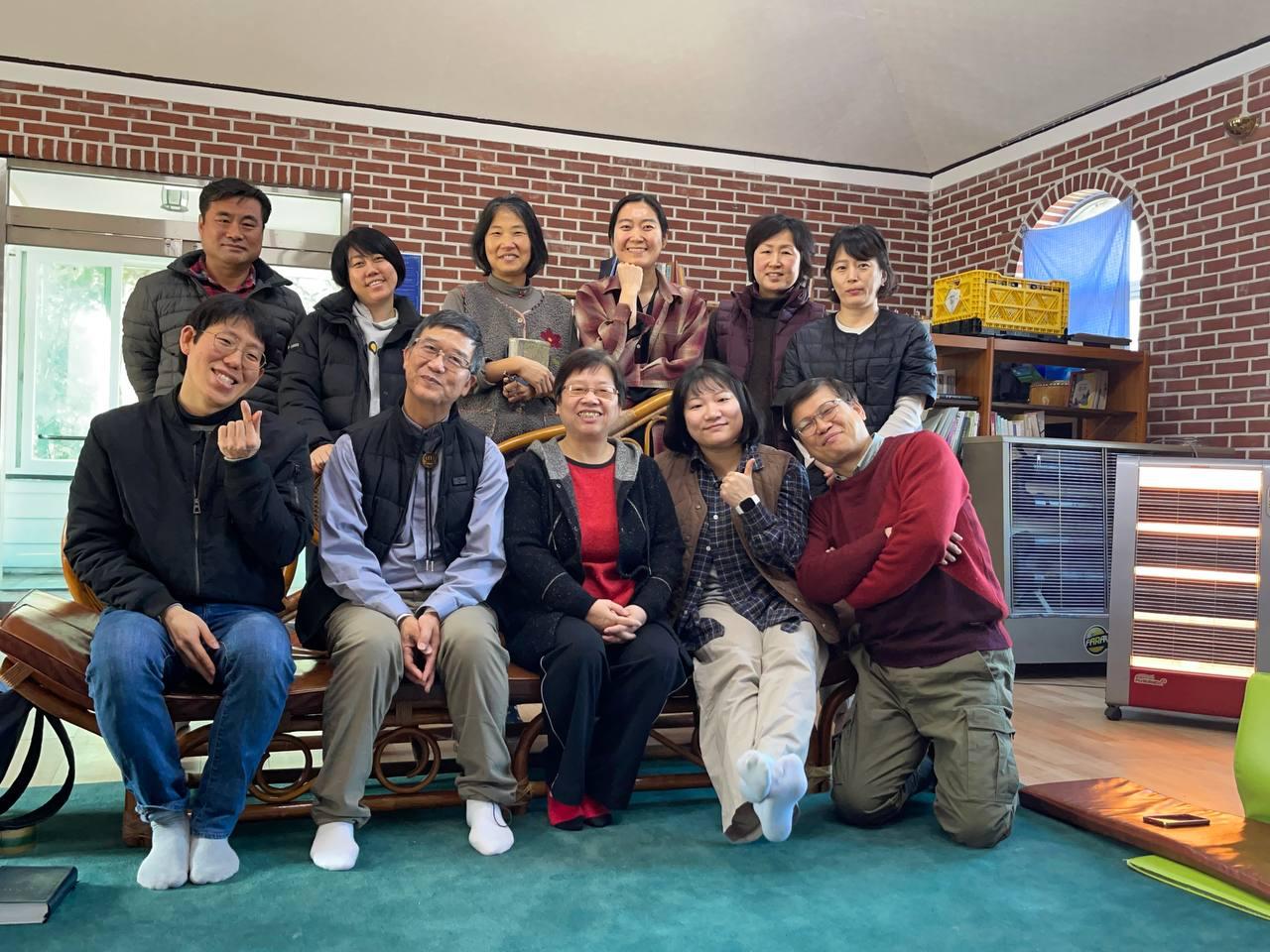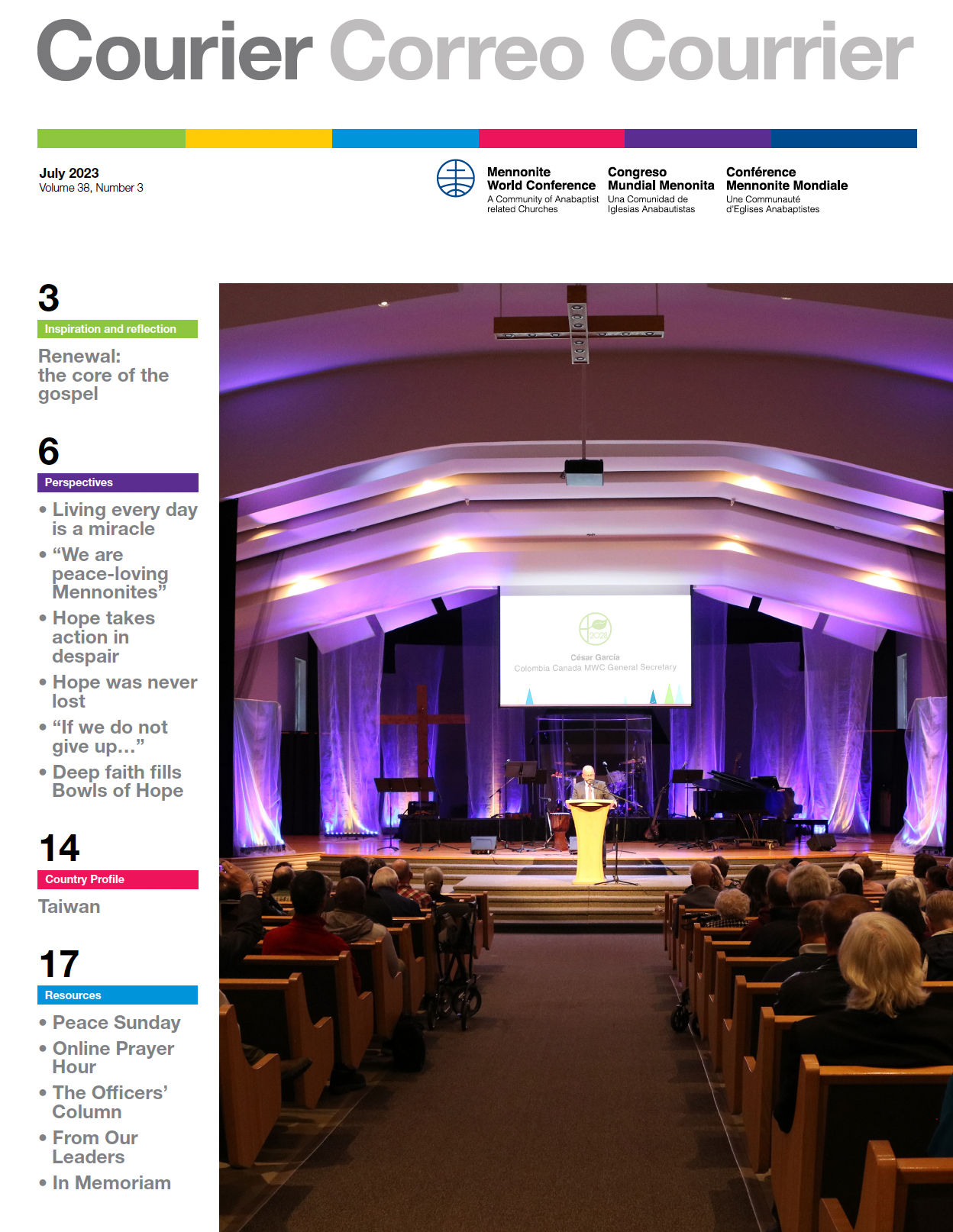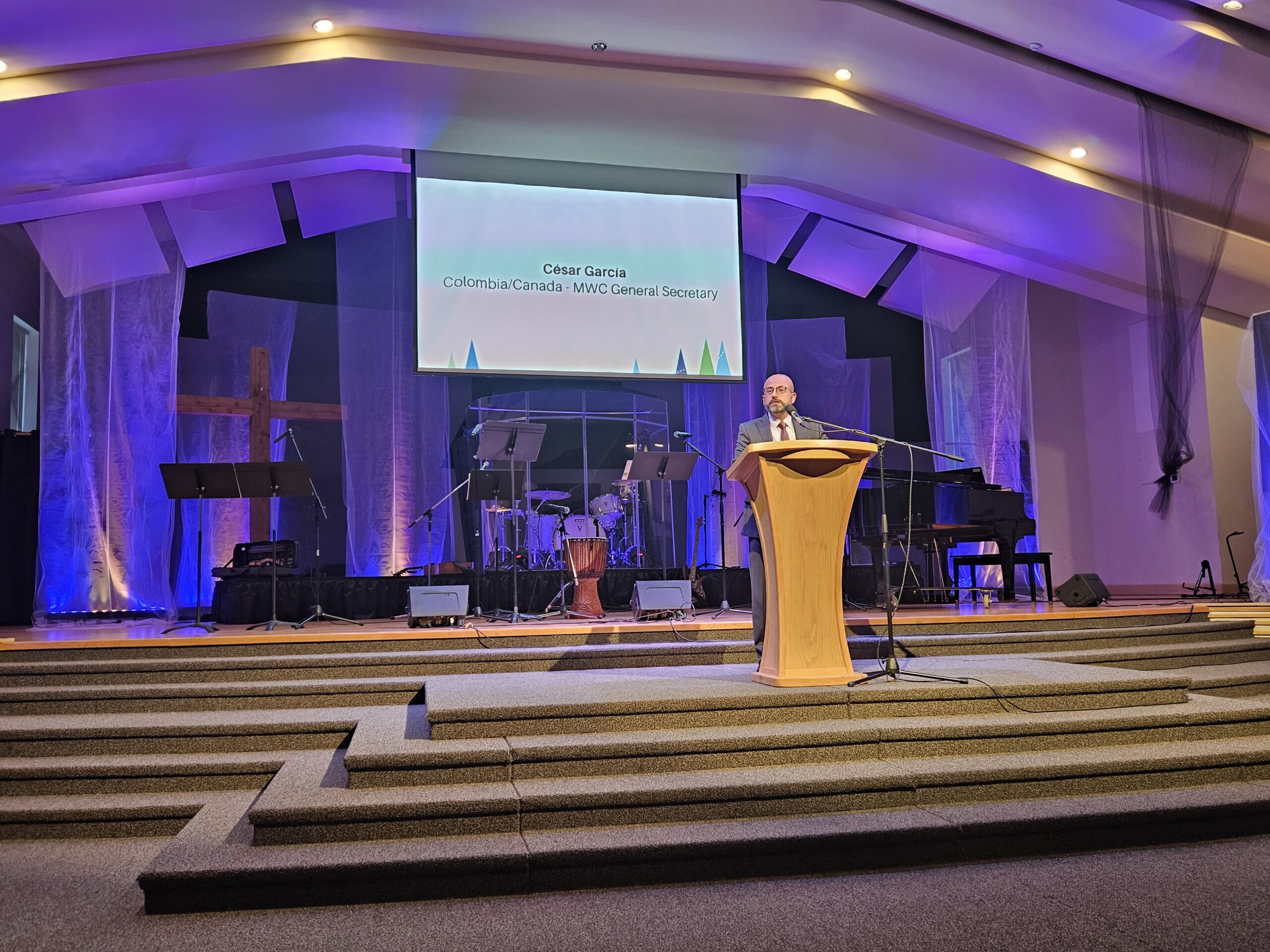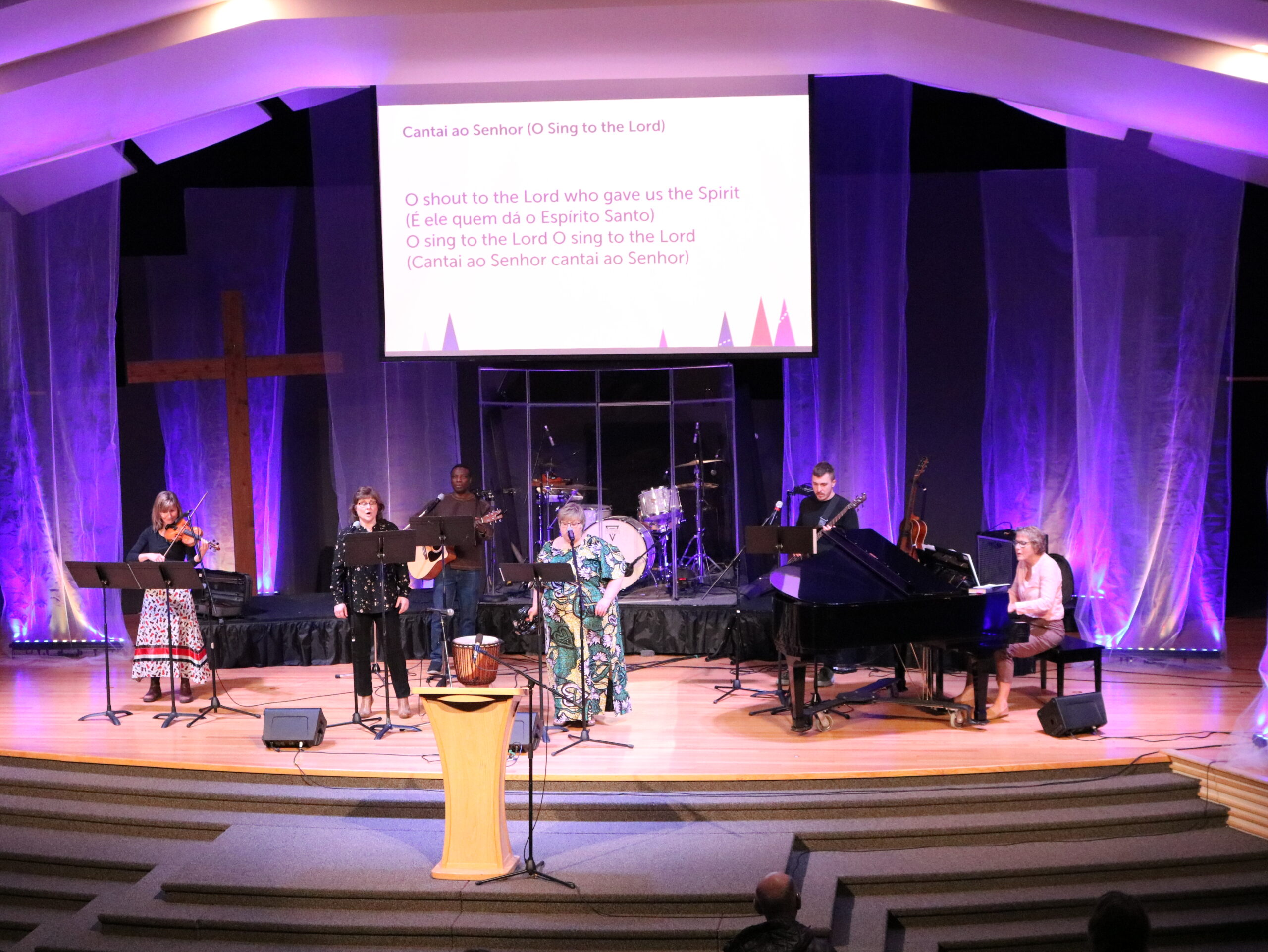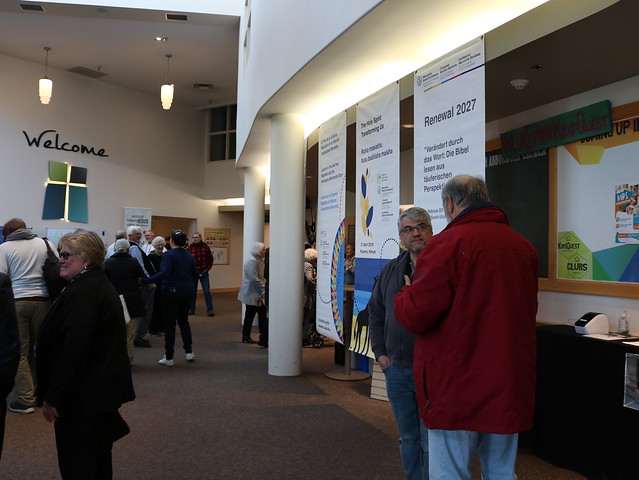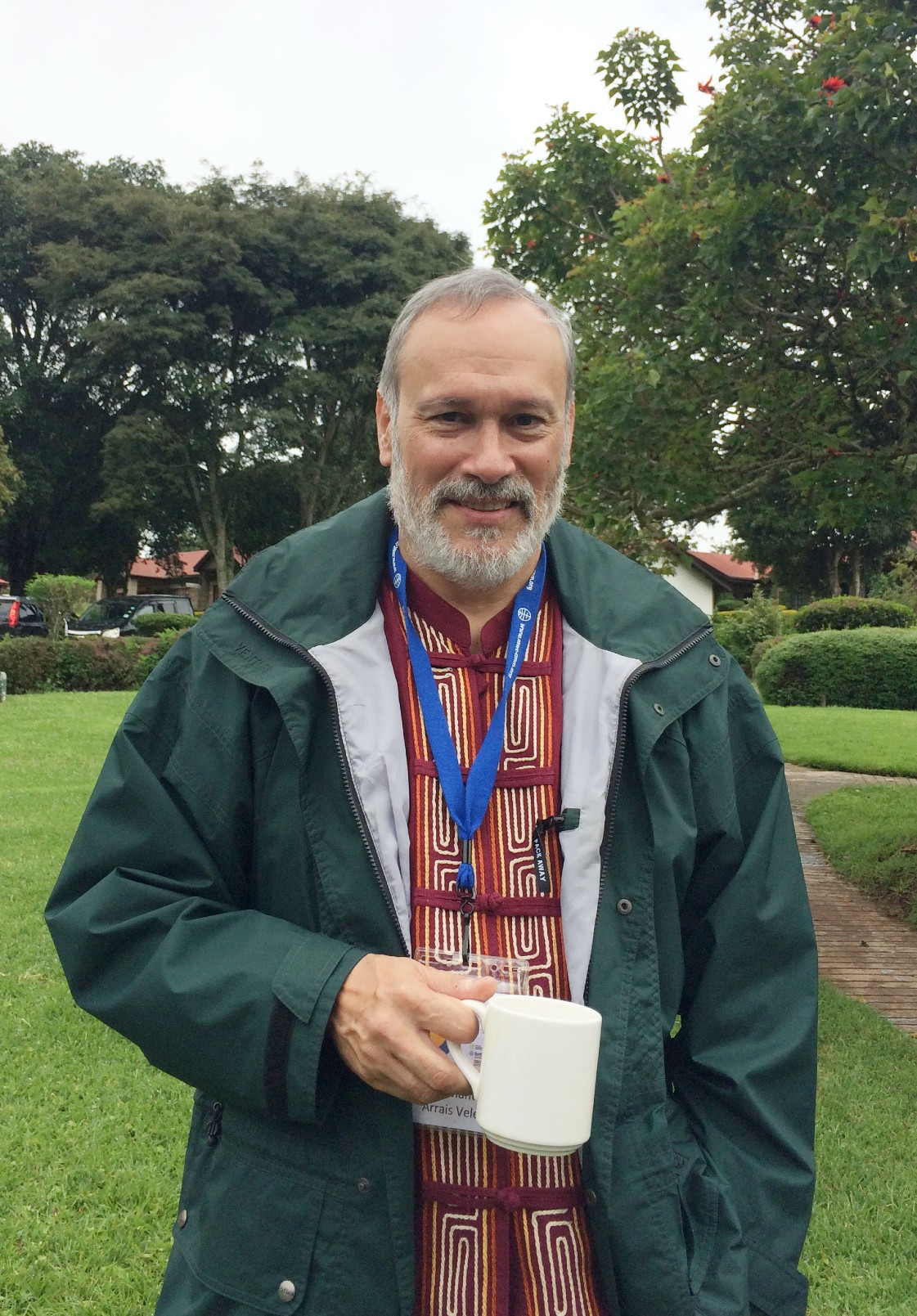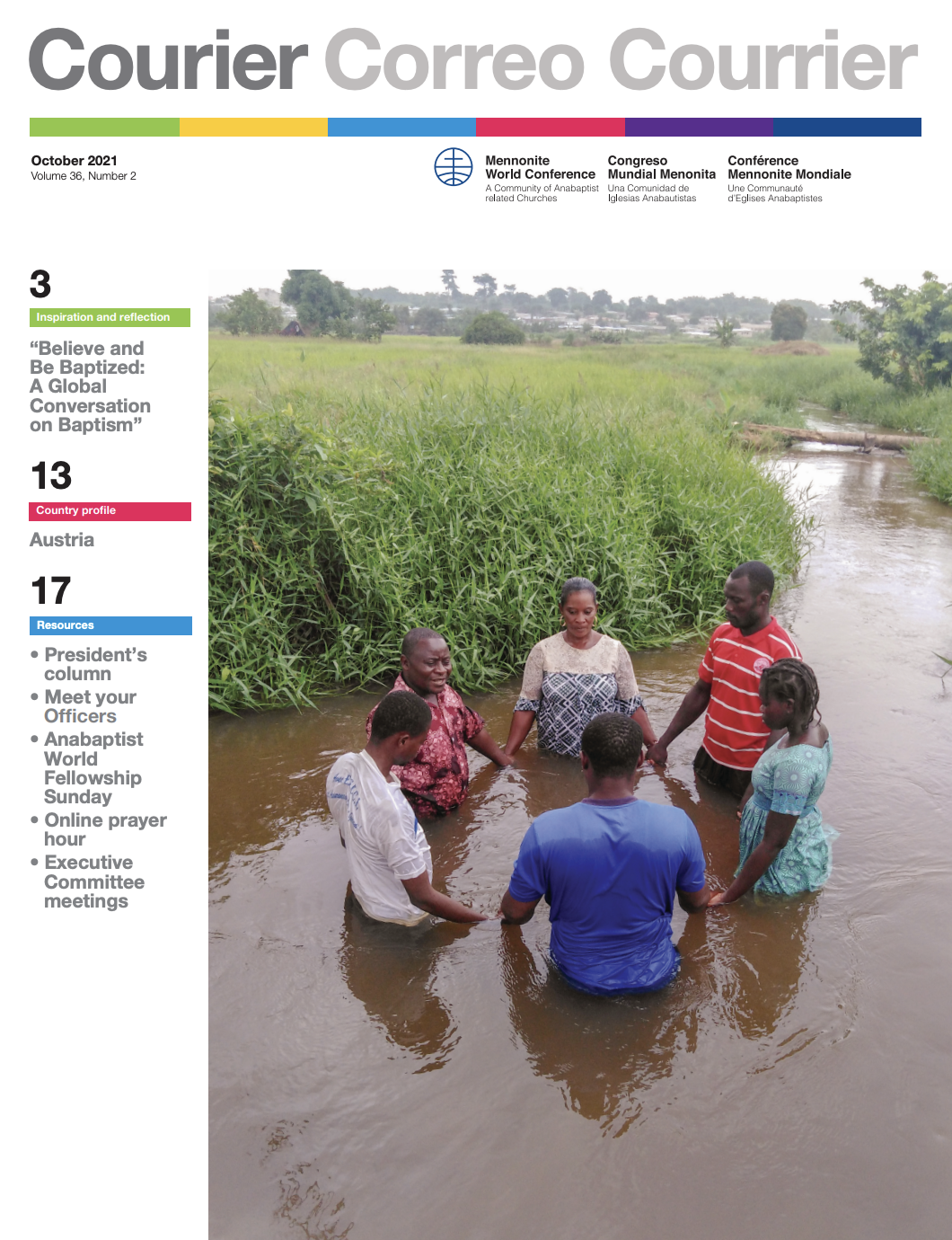-
Hope takes action in despair
Yes, it’s been 77 years since Korea was divided into North and South Korea. The deep-rooted fear that comes from a history of war and the insecurity that comes from that fear have created a lot of different forms of despair
-
Courier 2023 / 38.3
Inspiration and reflection Perspectives Country Profile Resources General Secretary Word from the editor Partake in this global communion What a joy to be together! This issue of Courier features Renewal 2023. Three years after it was first planned, this special event took place in British Columbia. Renewal is a series of events to remember the birth of the…
-
A spirit of repentance and Renewal
“That they may all be one. As you, Father, are in me and I am in you, may they also be in us, so that the world may believe that you have sent me.” (John 17:21) With these words from the Gospel of John 17:21, we warmly greet the sisters and brothers of Anabaptist churches…
-
Renewal
In 2017, Mennonite World Conference began a series of events called Renewal. The original vision was organized with a view toward the 500th anniversary of the beginning of the Anabaptist movement in Zurich, Switzerland, in 2025. It included several key components: The event should honour the past but focus primarily on the present and the…
-
A visible global church
“My heart hasn’t stopped beating fast since hearing the testimonies last night,” said mission committee member Joanne Lang at Arnold Community Church, B.C., Canada. Her local congregation was one of 29 that hosted Mennonite World Conference guest(s) for Sunday worship. The previous night was the 2023 local iteration of Renewal 2028, a series of events…
-
Renewal 2023
“By sharing the story of the global church, we can expand the concept of community. In the process of finding a Jesus-centred neighbourhood, not an ‘I’-centred neighbourhood, we can break down walls,” says Kkhot-Ip Bae. The Mennonite Christian from South Korea is the Asia representative on the YABs Committee. Join us in person or via livestream…
-
Join MWC storytellers in Abbotsford
“The beauty of listening the stories of the global church is immense,” says José Arrais. “We are all so diverse, with so complex backgrounds, with such unique dynamics between the regions, that each story is an original inspiration that all of us can learn from.” Locals near the Fraser Valley, British Columbia, Canada – and…
-
Courier 2021 / 2 October
Feature MWC leaders Assembly Update Country profile Resources
-
Jesus Christ: our hope
The Bible undergirds human rights “And remember, I am with you always, to the end of the age” (Matthew 28:20). Here in Burkina Faso, we have been confronted with terrorist attacks for more than four years. It is an inexplicable situation, because even though the attacks are recurring, no one has claimed responsibility. Faced with…
-
Everything is under the authority of Christ
Renewal 2027 testimony: Anabaptists today Renewal 2027 is a 10-year series of events organized by Mennonite World Conference’s Faith and Life Commission to commemorate the 500th anniversary of the beginnings of the Anabaptist movement. This series highlights leaders in the movement from history to the present. Gunungan is a figure from traditional Indonesian theatre that represents…
